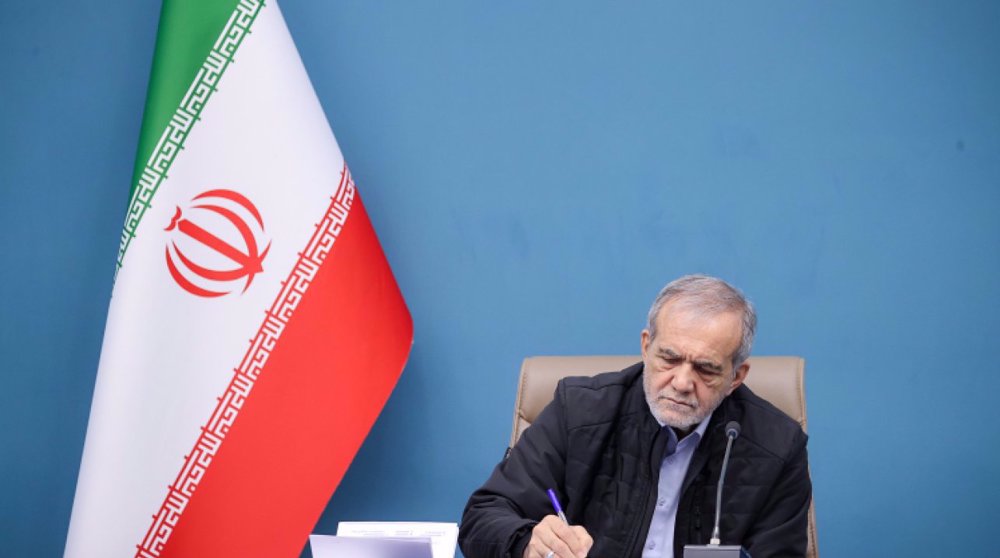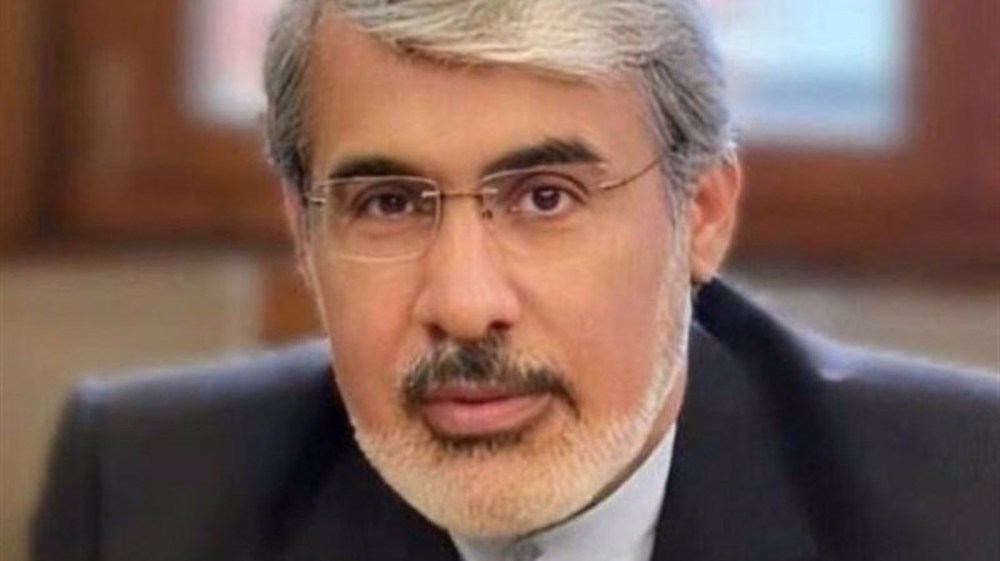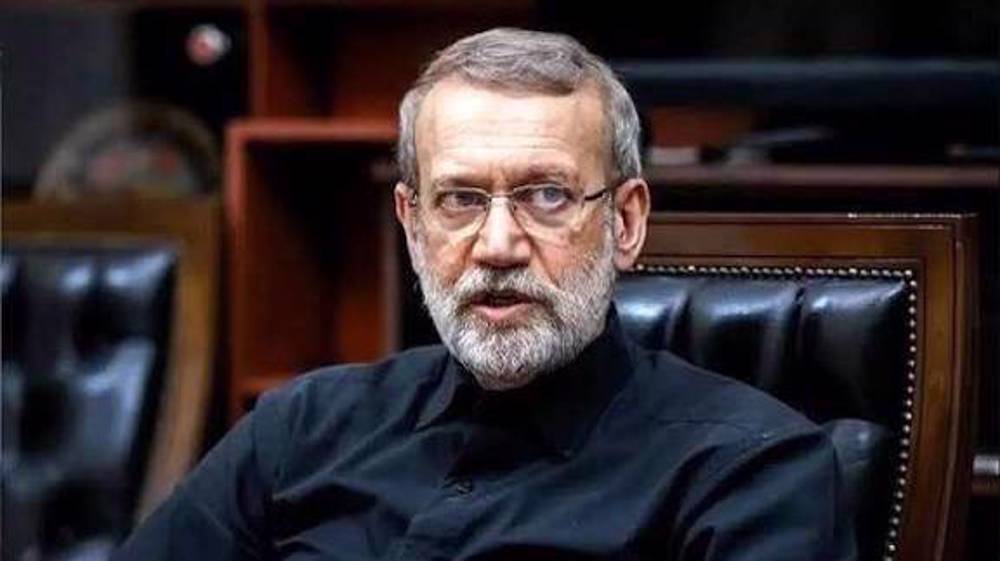Iran FM rules out new talks on JCPOA, says Biden must return to negotiated accord
Iran’s foreign minister says the new US President Joe Biden must return to the same nuclear deal that the Islamic Republic clinched with world powers in 2015, officially known as the Joint Comprehensive Plan of Action (JCPOA), and there will be no new talks on the accord.
Mohammad Javad Zarif made the remarks in an interview with CNN's Farid Zakaria on Sunday, adding that Iran has never withdrawn from the JCPOA, but just scaled down its commitments after former US president, Donald Trump, pulled Washington out of the deal.
It was Trump that withdrew from the nuclear deal and Biden must return to the same agreement, which has been previously negotiated, Iran's top diplomat added.
Under his signature ‘maximum pressure’ policy against Iran, the former US president withdrew Washington from the deal back in May 2018 and restored those economic sanctions the agreement had removed. The US also began threatening third countries with “secondary sanctions” if they violated the American bans.
The US left & violated the nuclear deal. So it's the US that has to return & implement its obligations.
— Javad Zarif (@JZarif) February 8, 2021
President Biden has a choice: Break with Trump's failed policies, or build on his failures. Building on his failures will only bring further failure. https://t.co/Q0MIEsGtXt
Trump abandoned the deal despite its multilateral nature and the fact that it has been endorsed as United Nations Security Council Resolution 2231.
Biden voiced strong criticism of Trump’s withdrawal from the JCPOA during his 2020 campaign, when he also promised to rejoin the accord signed when he was vice president. However, he has failed to take corrective measures since he assumed office on January 20.
Iran says the United States’ potential return to the JCPOA could only be meaningful if Washington removed all of the sanctions.
Leader of the Islamic Revolution Ayatollah Seyyed Ali Khamenei said earlier on Sunday that Iran will retrace its nuclear countermeasures once the United States lifts its sanctions in a manner that could be verifiable by Tehran.
“Iran will return to its JCPOA obligations once the US fully lifts its sanctions in action and not in words or on paper, and once the sanction relief is verified by Iran,” Ayatollah Khamenei said.
Zarif’s remarks came after Biden said in a Friday interview with CBS, which was aired on Sunday, that he would not lift sanctions in order to encourage Iran to start new talks with the United States.
Asked whether he would halt sanctions to convince Iran to return to the negotiating table, Biden simply said "No."
The journalist then asked if the Iranians would first have to stop enriching uranium, which drew an affirmative nod from Biden.
"US should not talk about Iran's defense capabilities, tell allies to stop war on Yemen"
Elsewhere in his interview, Zarif pointed to the American officials’ remarks about the necessity of including ballistic missiles in any talks with Iran over a new nuclear deal, emphasizing that the JCPOA is an agreement, which has been achieved through negotiations and it cannot be renegotiated.
If you seek to hold talks about weapons, you have to take all aspects of this issue into consideration, he added.
Iran’s foreign minister said the United States should not talk about Iran’s defense capabilities, but rather it should address the whole issue of weapons in the West Asia region, especially those, which are being used against women and children in Yemen.
While Saudi Arabia spent more than 70 billion dollars to buy military hardware last year, the United Arab Emirates, with a population of about 1.5 million, spent about 22 billion dollars on purchasing arms, Zarif noted quoting figures from the Sweden-based Stockholm International Peace Research Institute (SIPRI).
He added that despite having more than one million official military personnel, Iran’s military expenditure does not exceed 10-11 billion dollars.
Zarif also called on US to show some “tough love” to its allies and tell them to stop war in Yemen, adding that Iran is willing to work with UN envoy on Yemen and will meet him on Monday.
UN envoy for Yemen arrived in Tehran earlier on Sunday for consultations about the ongoing crisis in the Arab country, which has endured almost six years of incessant military aggression by a Saudi-led coalition.
During his stay, the UN official would join discussions and exchange ideas with Iranian officials about the means of ending the crisis in Yemen.
In an exclusive Skype interview with CNN’s Christiane Amanpour on February 2, the Iranian foreign minister said the JCPOA did not include Iran’s defensive capabilities, because the US was not prepared to stop its arms sales to the region as a precondition.
“The nuclear deal was negotiated based on what we could agree and what we could not agree. This is the deal that was made,” Zarif said.
Read more:
Iraqi resistance leader urges Americans to ‘reclaim’ country from Israeli ‘puppet Trump
Iran blasts US-Israeli use of autonomous killer systems against civilians as 'war crime'
US-Israeli aggression left Tehran with no choice but to defend Itself: President Pezeshkian
Iran urges immediate intl. action against US attacks on schools
Iraq won’t allow terror groups to cross border into Iran: Security official
Iran’s security chief: Does America come first or Israel with 500 US soldiers killed?
Iran warns all Israeli embassies ‘legitimate targets’ if Lebanon embassy attacked
IRGC pounds bases of anti-Iran terrorist groups in Iraqi Kurdistan













 This makes it easy to access the Press TV website
This makes it easy to access the Press TV website